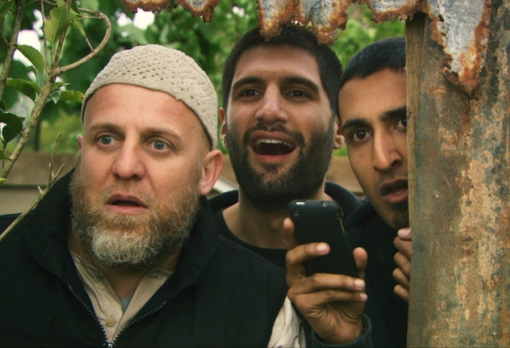One of the rallying cries of the New Atheists was that–as 9/11 shows–religion isn’t just harmlessly irrational. It’s dangerous.
The logic seemed clear: the more devoutly you believe in God the more likely you are to go and do something violent, stupid, or both in the name of God’s will. The logic was wrong. As the New Statesman reports:
Can you guess which books the wannabe jihadists Yusuf Sarwar and Mohammed Ahmed ordered online from Amazon before they set out from Birmingham to fight in Syria last May? … Sarwar and Ahmed, both of whom pleaded guilty to terrorism offences last month, purchased Islam for Dummies and The Koran for Dummies. You could not ask for better evidence to bolster the argument that the 1,400-year-old Islamic faith has little to do with the modern jihadist movement. The swivel-eyed young men who take sadistic pleasure in bombings and beheadings may try to justify their violence with recourse to religious rhetoric – think the killers of Lee Rigby screaming “Allahu Akbar” at their trial; think of Islamic State beheading the photojournalist James Foley as part of its “holy war” – but religious fervour isn’t what motivates most of them.
This isn’t just speculation or–worse still–some kind of PC effort to protect the reputation of Islam from its own adherents. As it turns out, this conclusion is the same one that was reached by the behavior scientists at MI5:
In 2008, a classified briefing note on radicalisation, prepared by MI5’s behavioural science unit, was leaked to the Guardian. It revealed that, “far from being religious zealots, a large number of those involved in terrorism do not practise their faith regularly. Many lack religious literacy and could . . . be regarded as religious novices.”
But that’s not even the most interesting finding. This is: The analysts concluded that “a well-established religious identity actually protects against violent radicalisation.”
In other words: if young, budding terrorists were more religious, they’d be less likely to be terrorists. Terrorism is primarily a socio-political response to insecurity, insecurity that a deep and abiding faith would help to alleviate.

That’d be so nice if this were true. Sadly, the reverse case is (also) true; the more you study the Islamic scriptures, the more become convinced of the fundamental tenets of Islam, including sharia and jihad.
Reece,
Sharia is not an inherently bad thing. Sharia is simply the rules governing the conduct of a Muslim’s life according to Islam. Although I have a lot of problems with the article, it is quite correct in suggesting that a stronger loyalty to sharia and a better grounding in it actually results in [i]less[i/] radicalised individuals.
That isn’t what Sharia is. Sharia is not just the rules governing the conduct of a Muslim. Sharia is the rules governing all of Muslim society, on a personal level, on a political level, and on a religious level. Sharia is a complete system that prescribes forms of governments, laws for society, and what the punishments for lawbreakers are. Like that the penalty for stealing is having your hand chopped off. Or that the penalty for making mischief is to be crucified. Or that apostates should be killed. Or that adulterers should be stoned. Or that girls are fit for marriage and sexual intercourse once they hit puberty. Or that Christians and Jews are to live under dhimmitude, paying a special tax called the jizyah as protection money, and are forbidden from repairing their houses of worship or displaying symbols of their faith. All of those things are also part of the Sharia left by Muhammad. Do you call someone who supports those things less radicalized?
In respectful response to Reece, tabling the question of what the Koran does or doesn’t actually say (or the different ways it is interpreted or followed by its one and a half billion adherents), yes, I would say that someone who “supports these things” is less radicalized than someone who actually engages in terrorist activities. Especially if you define a radical as someone who engages in terrorism.